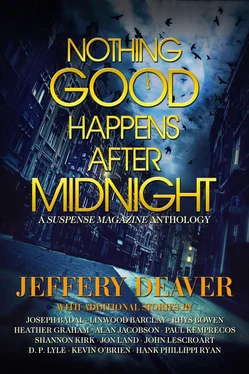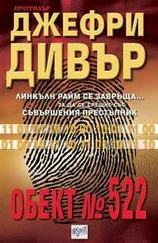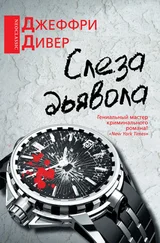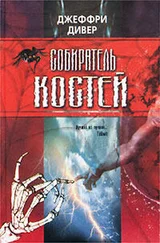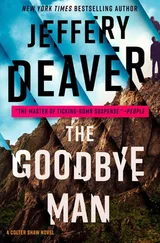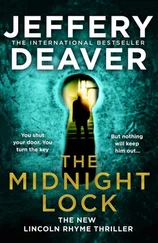Ed dialed 911. He kept thinking there might be a doctor somewhere in the store. With the phone to his ear, he hurried out of the men’s room. He almost ran into a short, pale man with a thin mustache. He wore an army camouflage jacket. The man glared at him.
“Nine-one-one,” Ed heard the operator answer. “What’s your emergency?”
But Ed didn’t reply. He froze in his tracks.
The man in front of him pulled a gun out from inside his camouflage jacket. “Cell phone scum!” he declared, raising the weapon.
The last thing Ed heard was the gunshot.
Then... nothing.
The shooter was an unemployed thirty-seven-year-old named Ronald Jarvis Barr. A security guard at Nordstrom tackled him at the exit as he tried to flee the store. No one else was hurt.
Ed was rushed to Swedish Hospital — along with Turner Pollard, 34, who had been discovered in the men’s room. Turner had suffered a mild concussion, took four stitches in his head, and was released later that night.
Ed was lucky in many ways. The bullet that had passed through his gut didn’t hit any vital organs. Moreover, the police and paramedics didn’t make any connection between him and the notorious “Ed” who had started the anti-phone-abuse trend. Turner’s memory was blurry, and he didn’t recall getting shocked. His phone had been found in the urinal. The police assumed he’d panicked after dropping the mobile device and slipped on his own pee.
They also must have assumed the Intruder found in Ed’s pocket was the remote keyless device for his car.
Ed decided that once they released him and he got home, he’d destroy the Intruder. He never wanted to use it again.
Ed had to stay in the hospital a couple of nights. On his second day there, he was still unsteady on his feet. But he wanted some exercise, so they gave him a walker to get around. He made sure his gown was closed in back as he feebly hobbled down the hospital corridor with some help from the walker. His stomach felt like it was on fire. But the doctor had told him that was normal in his circumstances. Still, Ed stayed slightly hunched over as he navigated the hallway.
Just ahead, he saw a thirty-something woman leaning against the wall, her hip pressed against the handrail. Her back was to him. “Oh, I’ll be here again tomorrow — and probably the next couple of days,” she said — apparently to no one.
As Ed passed her, he saw she was talking on her Smartphone. He also saw, on the wall directly across from her, a sign with a cell phone inside a circle with a line through it and the words: NO CELL PHONES ALLOWED.
“I think I’m just going home and making an omelet,” she was saying into her phone. “Probably Tex-Mex...”
Ed stopped and stared at her until her eyes finally met his. “I hate people,” he whispered, smiling.
The woman gazed at him as if he were crazy.
Ed nodded, then turned and slowly shuffled down the hallway.
All Aboard
Hank Phillippi Ryan
The Orient Express it wasn’t. But I knew that when I’d booked my tickets on the sleeper car from my meeting in Chicago back home to Boston. It would be efficient, traveling overnight. A twenty-three hour adventure. A vacation. Sort of. My client was paying the fare, and they’d encouraged me to go for it. “All aboard,” my client had said.
The glossy online brochure for the trip on the Lake Shore Limited had looked cozy, if not glamorous, and the idea of a separate compartment, just for me, all private and serene, might even give me a chance to catch up on work without interruption. And, imagine, even get some sleep. And arrive in Boston ready to wrangle some new business.
Now, as I attempted to punch my pillow-ish thing back into some semblance of pillowness, I wondered why no one had told me about the downsides of an overnight train.
The sound of the clackety wheels over the speed rails, I knew I could get used to that, it was train white noise, I figured, and had — sort of — expected it. But my luxury bedroom was not honestly luxurious. It tried, but it was a train. Three stems of stubby alstroemeria were stuck into a tiny glass vase perched, precariously, on a narrow metal shelf next to a cello-wrapped chocolate. A chair like a train seat, nubby tweedy blue upholstery, which didn’t recline. My bed, a bunk, took up most of the cubicle. I’d chosen the lower out of the deep and powerful belief that anyone on top would certainly fall off and tumble to the floor. That floor was clammy, with carpet so thin you could feel the metal beneath it, and the shower was tiny, so tiny that I’d just wait until I got home, and the loo was in plain sight. No one was with me, but still, it felt — exposed. And speaking of exposed.
Although the porter had promised that the wide glass windows were one way, so that no matter what I was wearing in my sleeper compartment (or not wearing) no one in stations along the way could look in, I wasn’t completely sure I believed that. As I stared at the bottom of the bunk thing above me, all coiled springs and twisted wires, I still feared that when we stopped — at Utica or Schenectady or Elyria — curious passengers on the platform would peer in to observe my insomniac self. Like a caged zoo animal on display.
See Cady Armistead in her traveling habitat , the sign on the outside of the train car might proclaim. “ Will Cady succeed in the cutthroat world of public relations? Or will she get devoured by the bigger animals? ”
Problem was, I thought, as I propped my head up on one elbow and watched the night go by, there was no way to tell how my life would go until the time came. Outside, the world was all in fast forward. It would have been fun to see in the daylight, maybe Ohio cornfields, if they had cornfields, or forests of upstate New York. At one point the dense darkness was slashed by bands of light; streetlights, I supposed. The train slowed, and I glimpsed a tiny town’s stoplights all go red, and lighted billboards that flashed by too quickly to read. Kind of like life, I thought, sometimes moments happen, but so quickly they’re uncapturable. My life as a public relations specialist — a fixer, as Hadley likes to call me — seemed to be rushing toward something, just like this train. But we can never know if the destinations we hope for will actually be on our life maps.
Or whatever. I just wanted to succeed. I’m good at fixing things, I do know that. Clients made miserable by snoopy and big-mouthed reporters, youthful indiscretions threatening to be headlines, time-bomb emails, college love affairs hanging like water balloons over a politician’s head. My job is to fend them off, calm the waters, soothe the savage whatevers, and let my clients succeed. All without anyone realizing I’d had a hand in it.
At least two CEOs and an internationally famed art dealer owe me their reputations, although I could never reveal who. One called me his hired gun. But there are never actual guns involved, of course. Power and money and control and reputation — and the potential loss of them — are equally effective weaponry. Anonymity, too, is a successful tool. My anonymity.
I flinched, startled, as another fast-moving train careened past us, whistle screaming, racing west. Our windows seemed so close. And yet, no way to see who was traveling the other way, speeding toward the unknown.
I’d indulged in a late night last-call glass of drinkable-enough cabernet from the café car, read toward the end of my novel, chomped the last of the Doritos, and felt, actually, proud of myself. Content. Safe. Burrowing down in my pillow now, I thought, well, okay. Time to sleep.
And then I heard the voice.
I sat up in bed, so quickly I almost bumped my head on the bunk above. The voice was as clear as if it had been in the next room, and I guess it was. I was in sleeper car “A” and, calculating, I figured the head of my little bunk was adjacent to the head of a similar bunk in sleeper car “B” next door. It had to be, because I was hearing as definitively as if I’d been using my earbuds to listen to a podcast on my iPhone. We might as well have been in the same room.
Читать дальше
